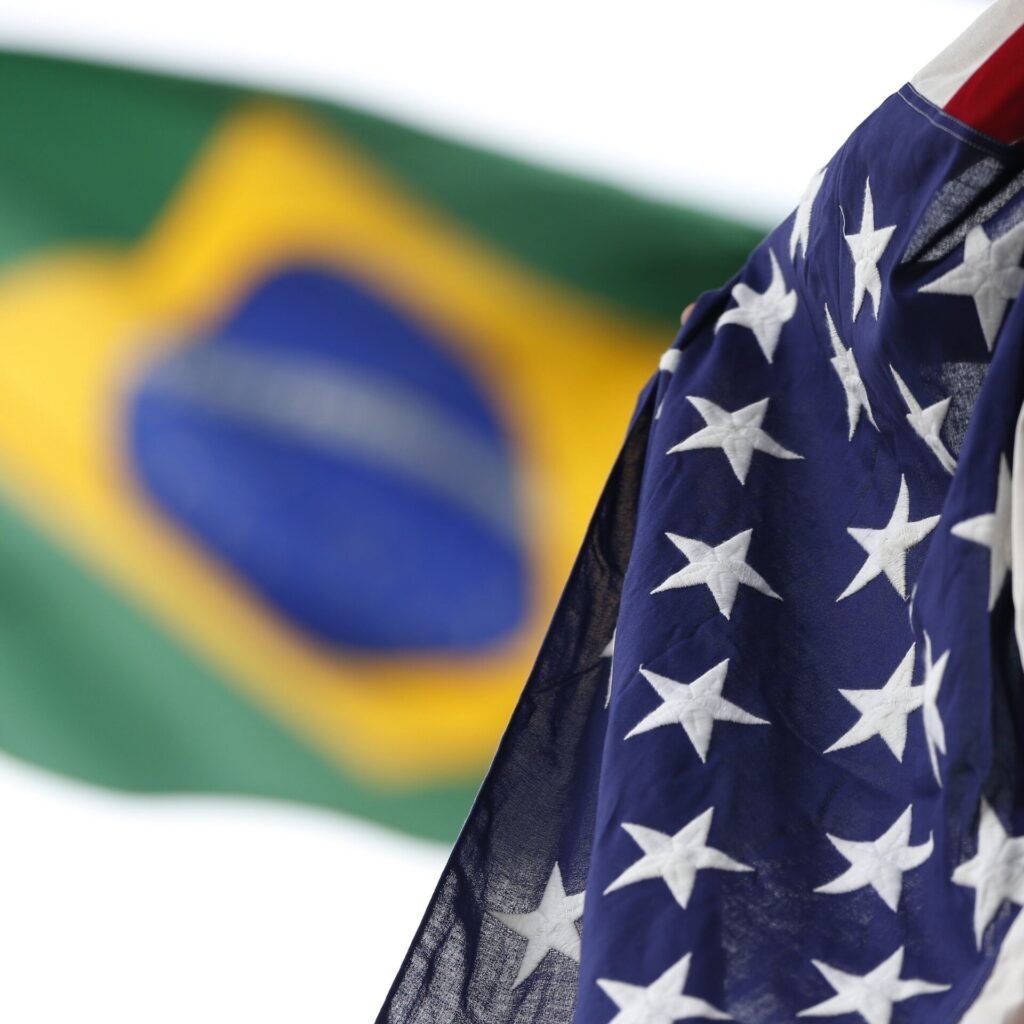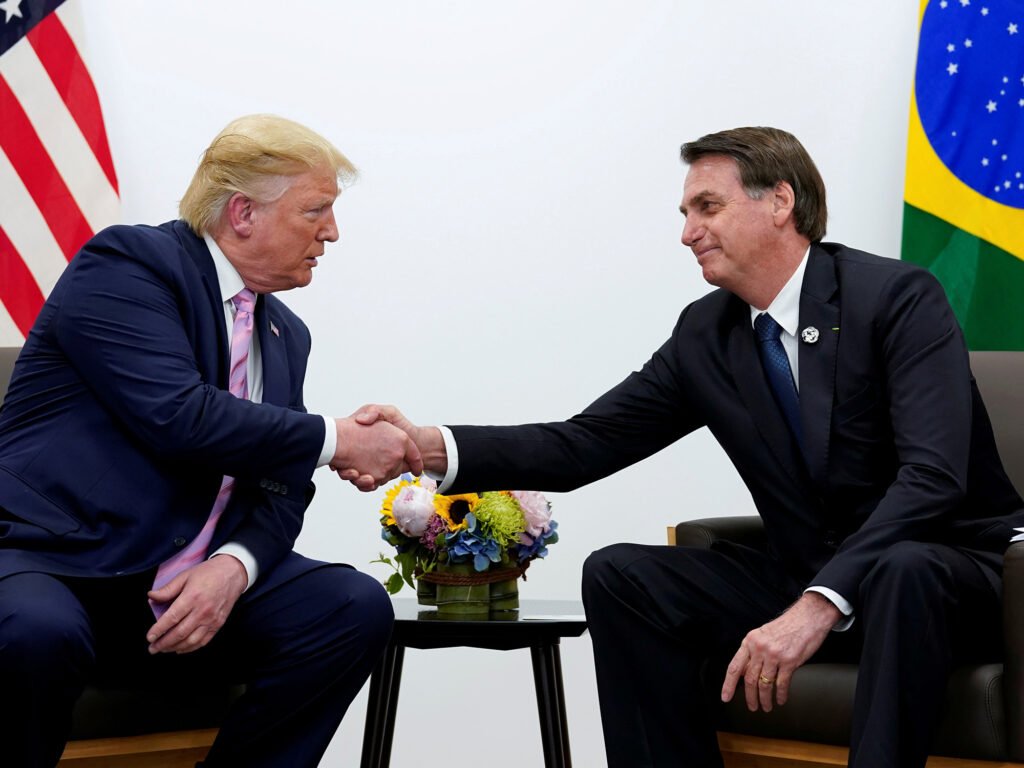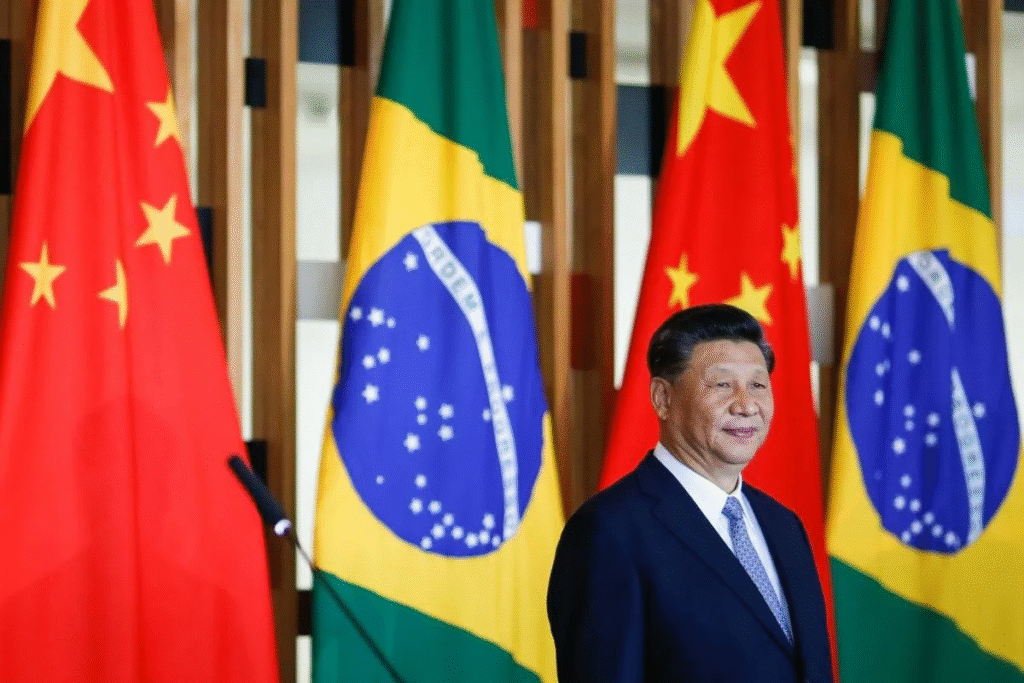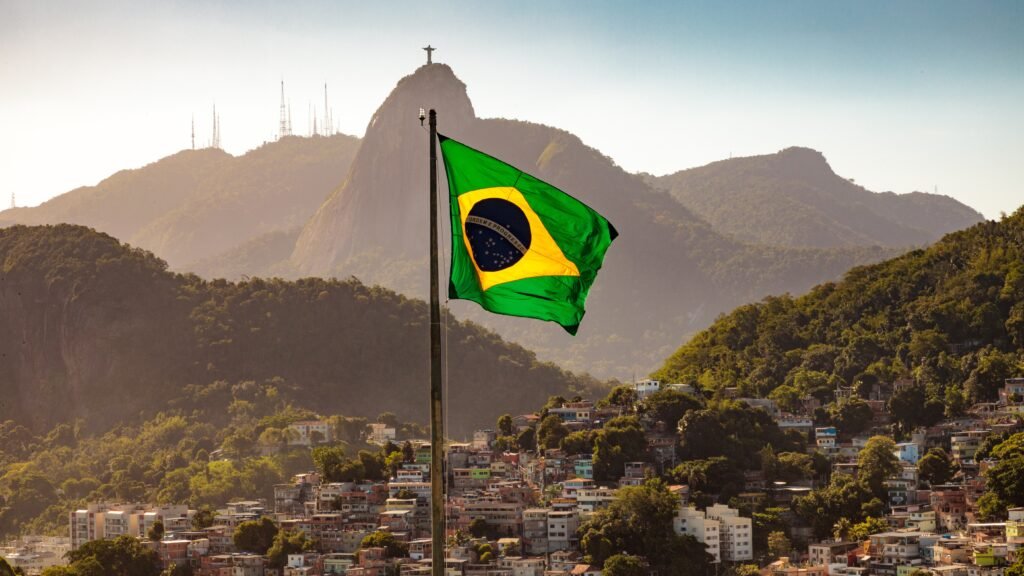Brazil on the Fault Line of Imperial Competition
In the unfolding crisis of global capitalism, Brazil has become a key battleground for imperialist rivalry. As U.S. hegemony declines and multipolarity emerges, the country is caught in a web of conflicting pressures, with its political and economic future hanging in the balance. Far from offering Brazil increased autonomy, this shifting global order has only deepened its dependency — now not only on the United States, but increasingly on China as well.
Since Donald Trump’s re-election in 2024, the United States has accelerated its aggressive trade posture, targeting adversaries and allies alike. Brazil has not been spared. From steel and sugar to broader sectors of agribusiness, U.S. tariffs have disrupted Brazilian exports under the pretense of trade deficits that do not exist. These actions reflect a broader imperial strategy: Washington’s attempt to reassert dominance over global trade routes, financial systems, and natural resources — by force or coercion if necessary.
Yet Trump’s nostalgic calls to restore U.S. imperial power are out of step with reality. The international order of the early 21st century is not the same as the post-World War II system in which American hegemony was forged. Today, the global capitalist market is shrinking, competition is intensifying, and alternative poles of power — particularly China and Russia — are no longer subordinate to Washington’s designs.

China, Russia, and the BRICS Challenge
As U.S. influence erodes, China and Russia have taken deliberate steps to undermine dollar dominance and construct new frameworks of cooperation. Initiatives such as the BRICS development bank, currency agreements in local denominations, and digital payment systems like Brazil’s PIX represent incremental but meaningful attempts to decenter the U.S. from global economic life.

While these alternatives are not yet powerful enough to supplant the dollar, they are unsettling to the U.S. establishment. The BRICS bloc and its expanding partnerships in the so-called Global South pose a long-term challenge to American primacy — especially as Chinese capitalism, currently more dynamic than its Western counterpart, draws in new allies and clients. Russia and China have responded to the West’s sanctions and trade wars by deepening their cooperation across economic and military dimensions. Projects such as the New Silk Road, the Arctic shipping route, and the BRICS+ expansion reflect a conscious effort to build new geostrategic corridors that bypass U.S. control. These moves threaten the existing imperial structure and invite backlash from Washington and its European allies.
Brazil: Imperial Outpost or Strategic Pivot?
Brazil’s strategic importance in this emerging contest cannot be overstated. It is one of the world’s ten largest economies and China’s principal trading partner in Latin America. Yet under Bolsonaro’s administration — heavily aligned with Trump and the U.S. far right — Brazil subordinated itself to Washington’s objectives. Anti-China rhetoric, hostility to Venezuela, and the undermining of domestic initiatives like PIX reflected Bolsonaro’s ideological obedience to Trumpism, even as his agribusiness base remained dependent on Chinese markets and Russian fertilizers.
Trump’s imposition of 50% tariffs on Brazilian goods was more than a trade dispute; it was both an act of economic warfare and political extortion. His associates hinted that these tariffs would be lifted if Bolsonaro were acquitted of criminal charges — suggesting that Brazil’s economic fate could hinge on the legal fortunes of a former president who had openly threatened democracy.
The implications are dire. A return of Bolsonarism could signal the privatization of strategic sectors, the handover of the Amazon and rare earth resources to U.S. corporations, Brazil’s withdrawal from BRICS, and an erosion of economic sovereignty under the guise of ideological alignment.
The Brazilian Bourgeoisie Between Two Fires

Brazil’s ruling class finds itself in a bind. Torn between an aging imperial power and an ascendant one, it attempts to hedge its bets — but the contradictions are becoming unmanageable.
On the one hand, elements of the elite cling to the traditional alliance with the United States, hoping to secure privileged access to American markets and capital. On the other, China’s expanding investment — over $66 billion since 2010 — is becoming too significant to ignore. Chinese capital is financing infrastructure, industrial development, and port modernization, positioning Brazil as a key node in Beijing’s long-term economic strategy.
Lula’s administration has sought to balance these competing forces. His government presents itself as ‘non-aligned’ — a strategy reminiscent of Getúlio Vargas’s maneuvering during World War II. But while Lula uses anti-imperialist language to stir nationalist sentiment, his coalition government is deeply embedded in the bourgeois order. It seeks not rupture, but compromise. Under capitalism, national sovereignty means nothing more than the freedom to choose between masters.


Trade, Infrastructure, and the Illusion of Autonomy
The deepening U.S.-China trade war has, ironically, created short-term advantages for Brazil. Soy exports to China have surged, replacing American suppliers. The electric vehicle sector, meanwhile, is receiving heavy Chinese investment, turning Brazil into a manufacturing hub. Infrastructure projects — including the proposed rail corridor connecting the Pacific port of Chancay in Peru with Ilhéus in Brazil — promise to revolutionize logistics and integrate Latin America into new global supply chains.
Yet these developments also tighten Brazil’s dependence on foreign capital. Chinese state-backed firms are leading massive railway, port, and airport construction projects across the continent.
The country’s growth is increasingly shaped by the imperatives of Chinese export strategy rather than domestic industrial planning. While the U.S. used to dominate Brazil through financial and military levers, China is now doing so through investment and trade.
This transformation will not bring emancipation. Rather, it replaces one imperial relationship with another.
The Multipolar Mirage
Many analysts have hailed the emergence of multipolarity as a chance for the Global South to assert its independence. But this is a dangerous illusion. In reality, the multipolar world is still a capitalist world — and for dependent nations like Brazil, it offers not liberation but new forms of subordination.
Multipolar competition fuels militarism, protectionism, and nationalist populism. It does not abolish imperialism; it multiplies it. The Global South is not becoming autonomous — it is being carved up by rival empires, each seeking markets, resources, and allies for their own advantage.

The Only Way Forward: Class Struggle and Revolutionary Break
Brazil’s dilemma — caught between U.S. decline and Chinese ascent — cannot be resolved within capitalism. As long as economic policy is dictated by the needs of global capital, sovereignty will remain an illusion. Whether the ruling class aligns with Washington or Beijing, the costs will be borne by the Brazilian working class: through austerity, environmental degradation, and repression.
Lula’s reformism cannot deliver true independence. His politics of conciliation, while occasionally dressed in nationalist rhetoric, ultimately serve the same elite interests that have subordinated Brazil for generations.
The only real alternative lies in revolutionary transformation. Only a government rooted in the Brazilian and international working class can sever the ties of imperial dependency, take control of strategic resources, and redirect the country’s development in the interest of the majority.
Until then, Brazil will remain a chess piece in the game of empires — forever shifting between decaying and emerging powers, never charting its own path.

